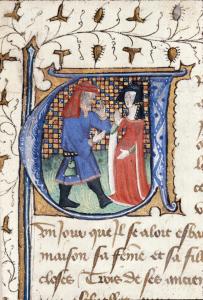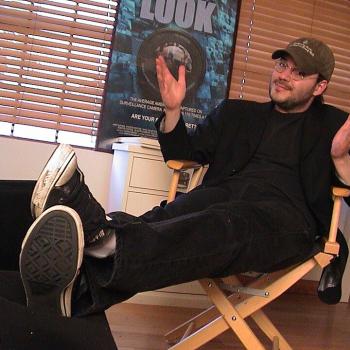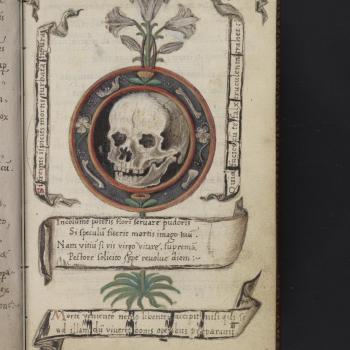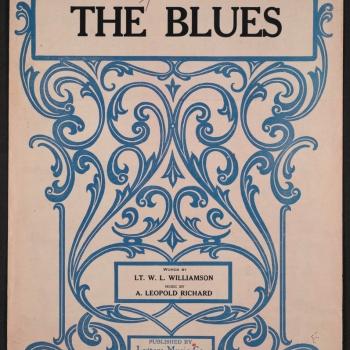
Source: Picryl
Public Domain
You can rip his pair of striped pants off and slash away his mustache, but I guess the barbarian always remains. Or at least that’s how I feel after watching Zach Cregger’s Barbarian (2022). I had hope. It was well reviewed, seemed pulpy, even promised to bring in contemporary issues without just throwing in the “uh, all the cell phones just don’t work right now” excuse. My hopes were dashed, my paltry desire to see a good horror movie come out of this benighted “renaissance” put down with a final stake through the heart [previous films like The Babadook (2014), Hereditary (2018), and Midsommar (2019) all smashed wooden points deep into my ailing flesh and bones but never landed a killing blow).
I exaggerate. There are exceptions. Get Out (2017) managed to be thoughtful and unnerving without being pretentious. Terrifier 2 (2022) has its issues, but it never tries to become a discursus on the nature of man; it remains rooted in its predecessor’s (2016) festival of brutality. But the lot of dense horror movies that have cropped up in the last decade has left me dejected. Barbarian promised to balance complexity and genre-rich fun. What I got instead makes Demon Lover (1987) look like the Confucian Analects (c. 475 BC).
What cannot be exaggerated is Barbarian’s popularity, both critically and with audiences. Its box office returns are ten times its budget; its critics’ score on Rotten Tomatoes is 93%, while its audience score sits at a respectable 71%. What’s gone wrong here?
Oh, let me count the ways. Barbarian plays like an anthology film. We begin with Tess (Georgina Campbell) trapped in a rainstorm outside a Detroit Airbnb. Her key doesn’t work. But (un)lucky her, the house already has an occupant, a man named Keith (nepo baby and killer clown, Bill Skarsgård). This first chunk works exceptionally well. Keith seems nervous and keeps offering drinks. Soon he’s apologizing for offering drinks because he’s afraid he’s being creepy. He gallantly agrees to sleep on the couch for the night until they can figure out why the place is double-booked in the morning (there’s a convention in town and the neighborhood is terrible; Tess has nowhere else to stay).
But then comes the harbinger of doom, a Cassandra whose whining, mad prophecies will mean nothing until it is too late. Tess begins to talk with Keith about the gender dynamics we’ve observed so far. She comments on his willingness to let her in and how she’d never return the favor. Fair enough. But why make this explicit? The whole movie up to this point has been clever shots of glasses of wine, quick scurries out of frame to make tea. We know why the situation is fraught. The music, the pacing, the framing—it’s all screaming. And yet, the movie does not trust us. How little trust it has cannot be imagined at this early stage.
The critic of my inner critic asks: maybe the writer-director wanted to establish that they’re starting to like one another, even trust each other a bit. Swing and a miss, inner inner critic. The lighting is warmer in this scene. They’re drinking wine together. Their body postures cry “SEXUAL TENSION.” What need do we have for morality tales? Medieval allegory is subtler.
Soon enough we’re with AJ Gilbride (Justin Long), actor and potential sexual assailant. How we get there is not for me to tell. But by the end of the movie, every ounce of subtlety will have been sucked out of what was once a promising movie. Any detail you might have wanted to contemplate will be spelled out in graphic detail. You will find out if AJ is guilty. You will find out in the most ham-fisted way imaginable. We’ll be treated to a five-plus-minute flashback that serves no purpose other than to spoil a possible twist. A wise black homeless man will march into frame only to be dispensed with like the trope he is. Again, I’ve seen greater subtlety in Rod Dreher columns.
As the movie is set in Detroit and has Me Too-inflected gender politics, one might expect it to offer a Left-leaning take on race and policing. Not so fast, my friend. Again and again, the police fail to help, but the issue is never incompetence but the ubiquity of crime. Tess rushes to get help at one point and meets a Black officer who assumes she’s a crackhead and screeches at her for wasting police time (their budgets are so limited after all). Swing and a miss.
Are there creepy moments? Sure, though even these are often ruined by head-scratching choices (an early jump scare is matched to a screech so comically over-the-top, it’d make Ed Wood blush—another murmuring soothsayer I hadn’t the guts or brains to heed). Are there some laughs? I suppose. But nothing can make up for the film’s awkward politics and ham-fisted execution. I’m done here. I’m going to go read Chaucer’s The Tale of Melibee. That’s got Dame Prudence and proverbs on proverbs—something with a little pep, something that respects its audience!













